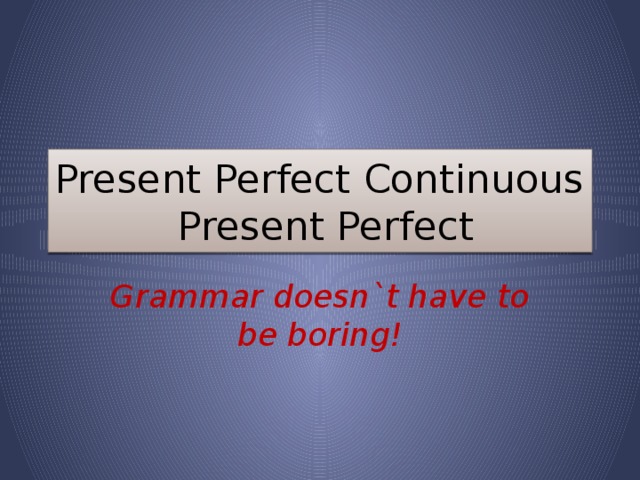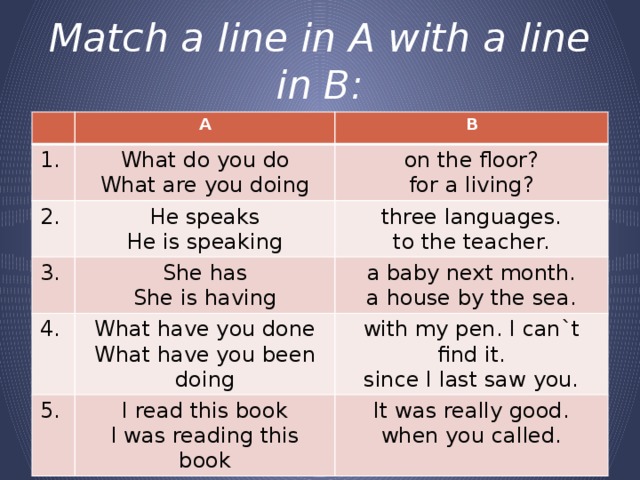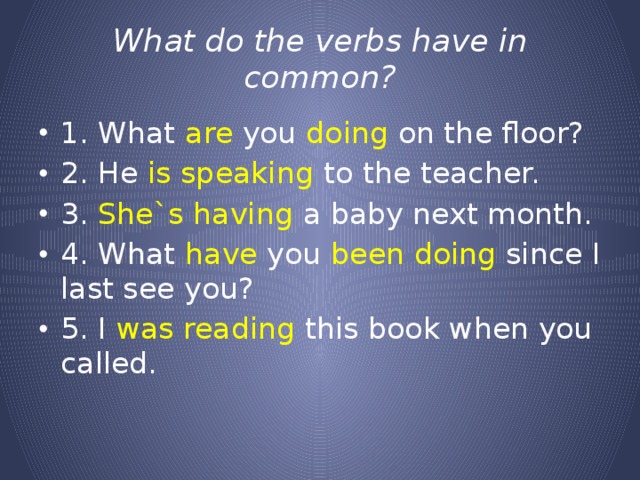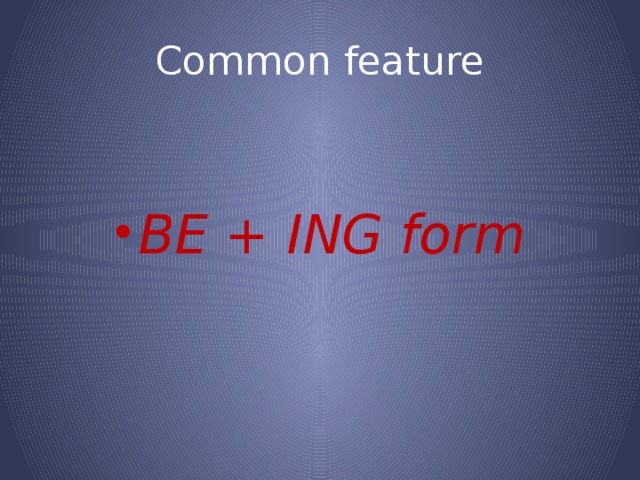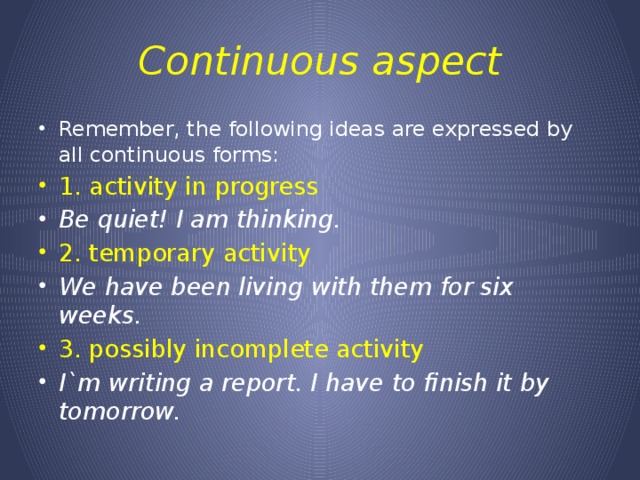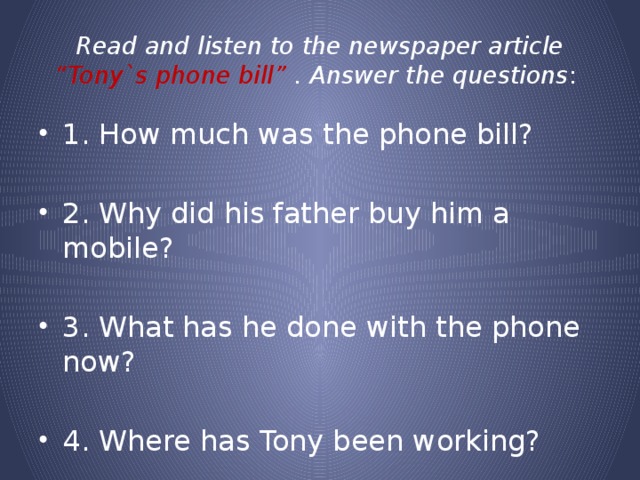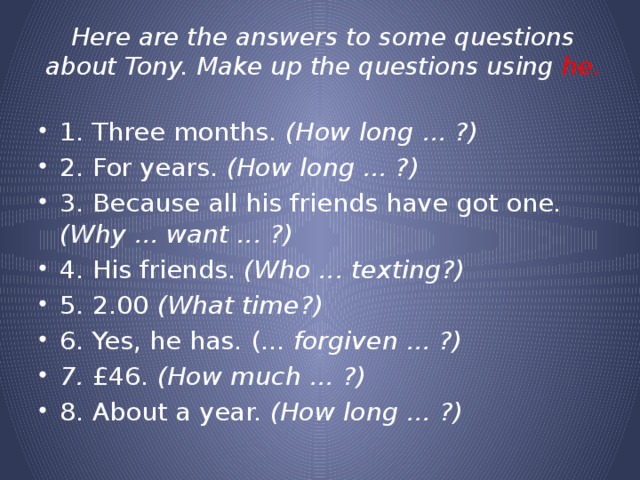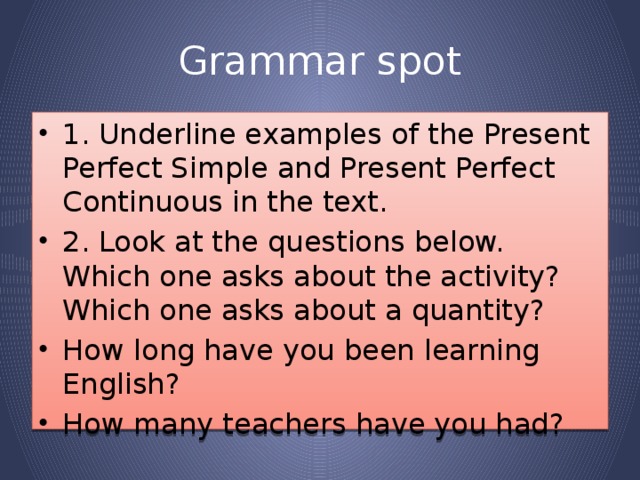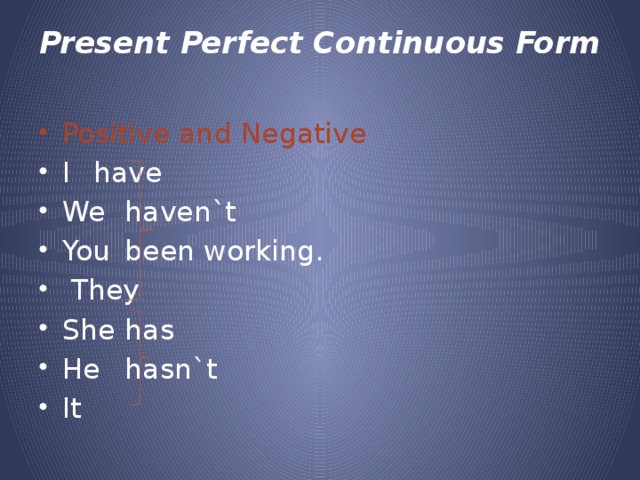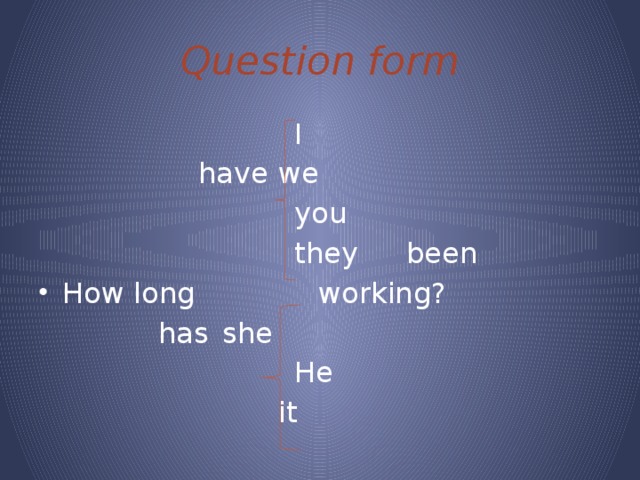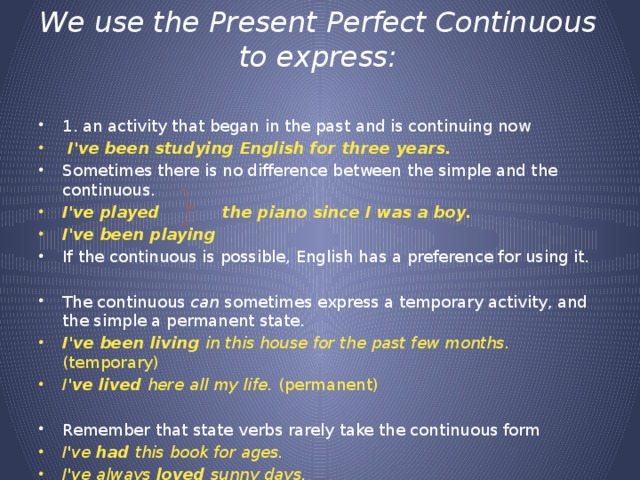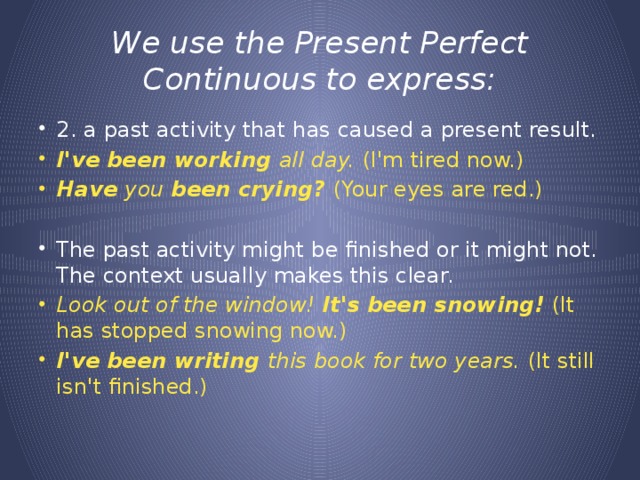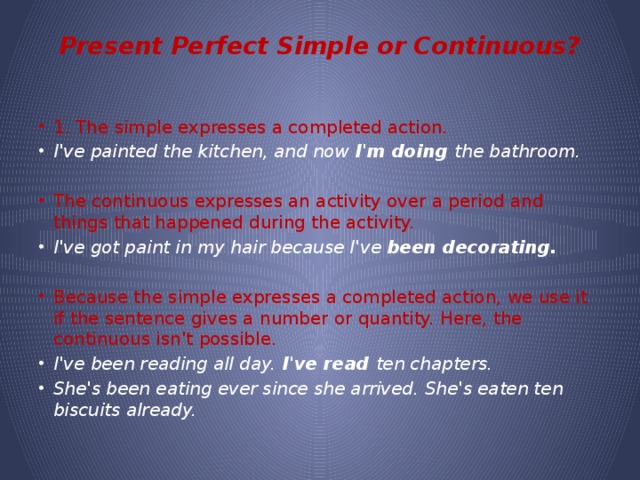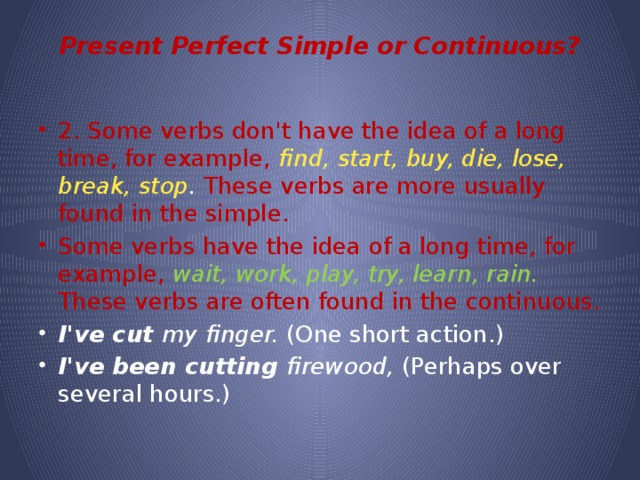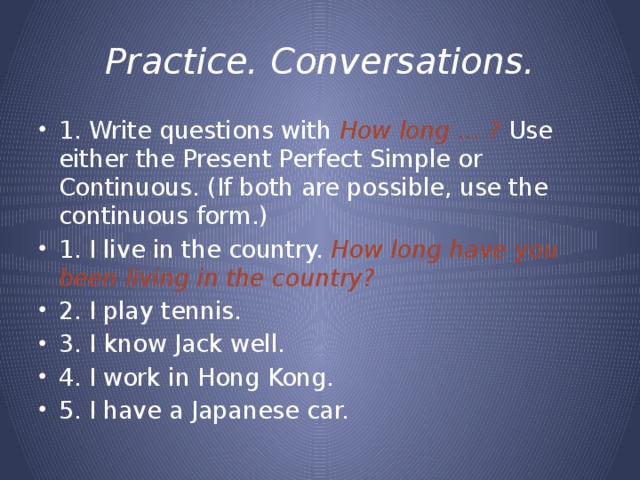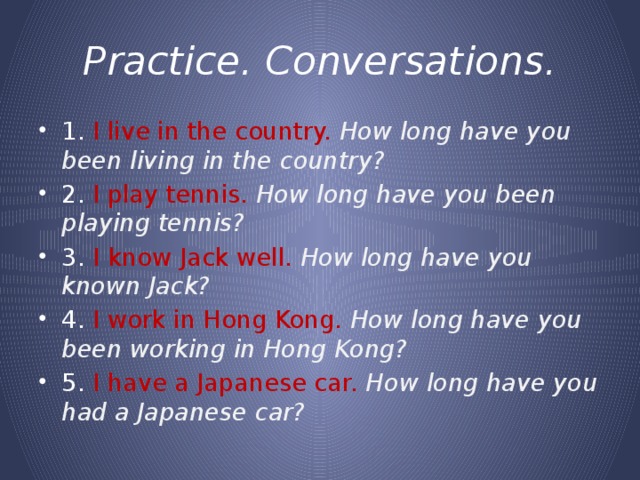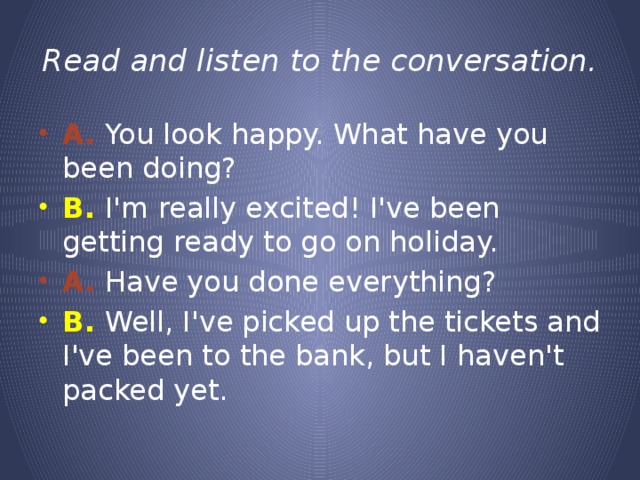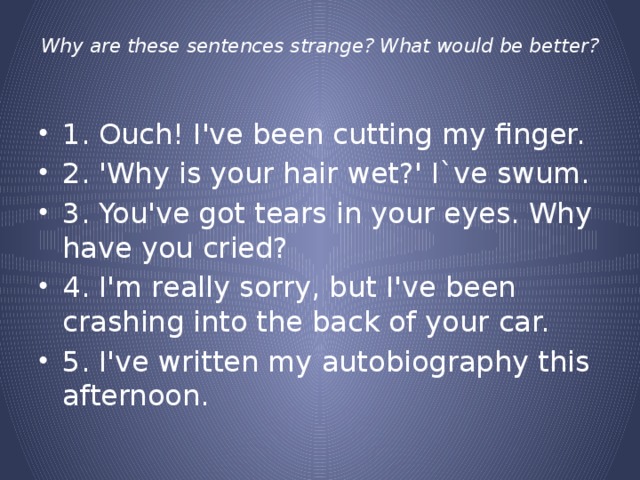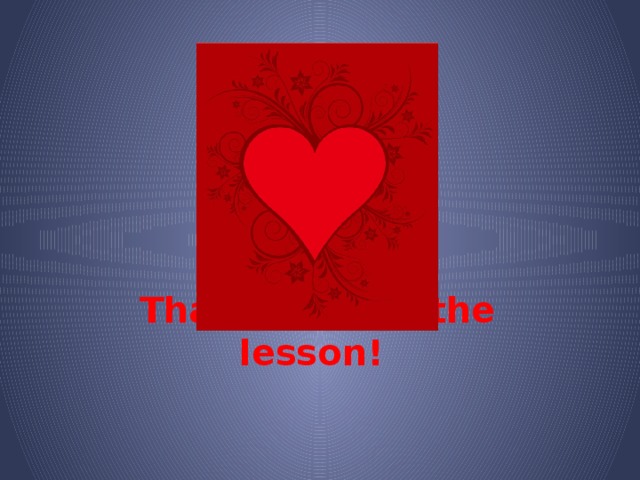Данная методическая разработка направлена на формирование и совершенствование грамматических навыков употребления видо-временных форм глагола таких, как Present Perfect и Present Perfect-Continous. Слай за слайдом учащиеся усваивают разницу в использовании изучаемого грамматического материала. Само правило представлено в презентации на английском языке, что требует достаточно высокой языковой подготовки учащихся. Презентация также включает в себя задания для активизации речемыслительной деятельности учащихся на уроках.
Создайте Ваш сайт учителя Видеоуроки Олимпиады Вебинары для учителей
Презентация для урока по английскому языку по теме "Present Perfect vs Present Perfect Continuous"
Вы уже знаете о суперспособностях современного учителя?
Тратить минимум сил на подготовку и проведение уроков.
Быстро и объективно проверять знания учащихся.
Сделать изучение нового материала максимально понятным.
Избавить себя от подбора заданий и их проверки после уроков.
Наладить дисциплину на своих уроках.
Получить возможность работать творчески.
Просмотр содержимого документа
«Презентация для урока по английскому языку по теме "Present Perfect vs Present Perfect Continuous"»
Похожие файлы
Полезное для учителя
Распродажа видеоуроков!
1940 руб.
2770 руб.
1880 руб.
2690 руб.
1880 руб.
2690 руб.
1760 руб.
2510 руб.
ПОЛУЧИТЕ СВИДЕТЕЛЬСТВО МГНОВЕННО
* Свидетельство о публикации выдается БЕСПЛАТНО, СРАЗУ же после добавления Вами Вашей работы на сайт
Удобный поиск материалов для учителей
Проверка свидетельства
